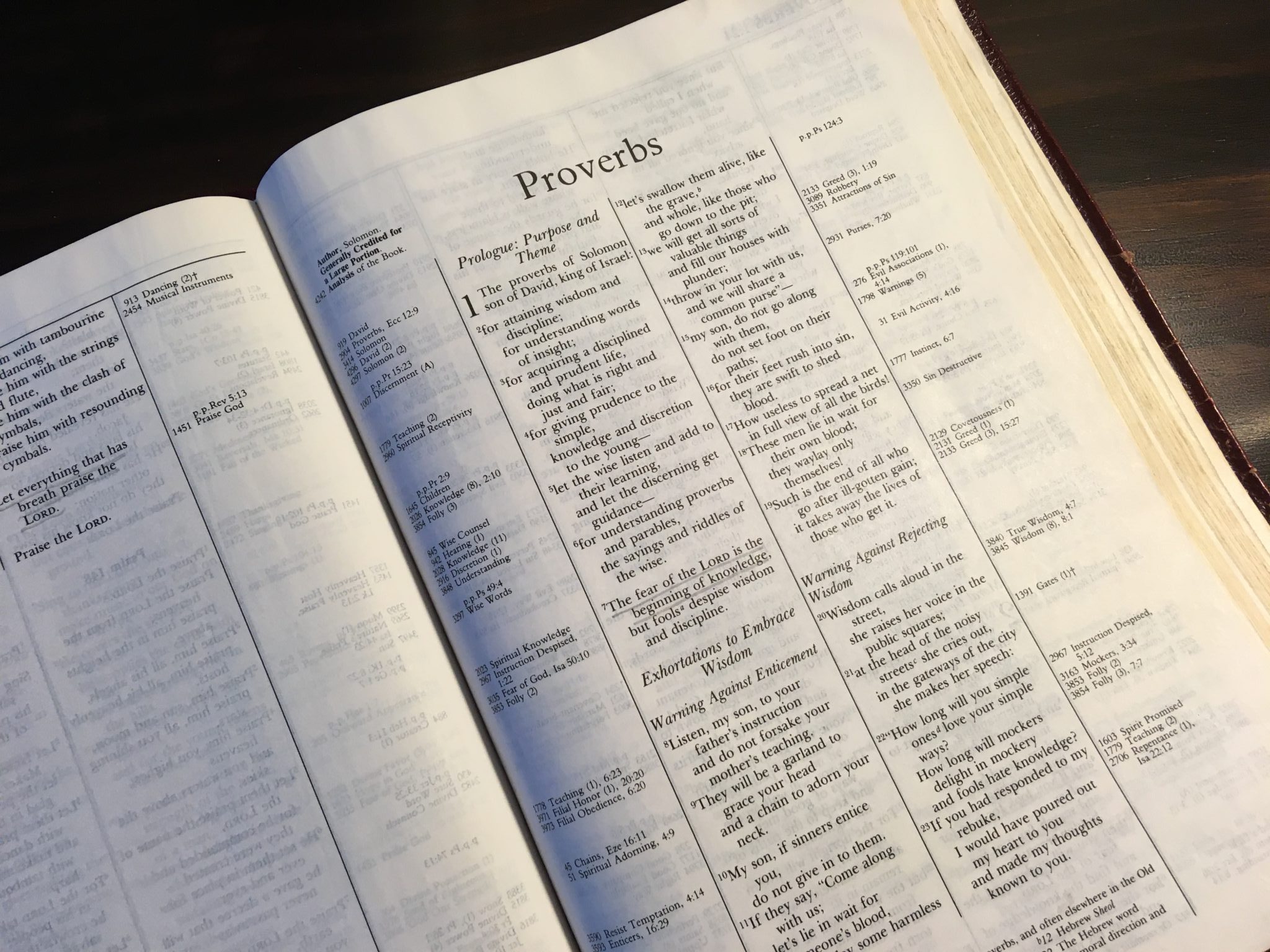The Conscientious Voter (Part 3:Voting Guide)

In Part 2 of this series I looked at the various criteria that we voters might consider when choosing between candidates for elected office. Just like any hiring decision, which aspects of the job applicant’s background are most important must be sorted out in order to make a final decision. I suggested most hiring managers, particularly those bringing someone into a significant position of leadership, likely evaluate elements of the following.
- Knowledge
- Skills
- Philosophy
- Values
- Character
- Leadership
- Habits of mind
- Physical aptitude (if relevant)
As we approach the general election, in addition to much unfounded criticism and name calling, we are likely hearing things about the competing candidates’ experience, policy perspectives, and vision for the future. These are all important. But we all know that in the messiness of politics, office holders are rarely able to enact exactly what they envision. Circumstances and other people always constrain their choices. Compromises are made. On occasion, the grand ideas of one day are revealed to be totally impractical the next.
In “Part 2” I argued that, really, the most enduring, and probably the most important lens through which to view candidates is the lens of character. By the time someone runs for elected office, they have had time to solidify the habits of thought, behavior, and values that speak to the kind of person they are.
If you vote on the basis of good character, even if all their thought-out plans get sidetracked, they are still the kind of person you would want in a position of leadership. In general, you can trust a person of excellent character to do the right thing.
The book of Proverbs in the Bible is considered by many scholars to be a sort of ancient textbook for young men aspiring to community or government leadership. It seeks to spell out what it means to act “wisely.” And it points out the characteristics of a “fool.” Many, if not most, of the principles laid out in Proverbs are repeated in different forms by the ancient Egyptians, Mesopotamians, Greeks, Romans, Chinese, and Indians. People as diverse as Mencius, Laozi, Cicero, Epictetus, and Marcus Aurelius echo much of this Biblical classic.
I believe the principles repeated throughout the book form a good set of criteria for the conscientious voter. They speak to enduring character qualities. Here’s my attempt to summarize the basic principles in the form of a rubric for voting. While it is likely possible to assign weights and values to the criteria listed here, just going through the list with the candidates in mind will likely give you a good sense of whether each individual tends to be “wise” or “foolish.” (I’ve listed a few verses from Proverbs after each one in case you want to explore further. Note that the list is not exhaustive.)
Advice. The wise always seek out good advice whenever they need to make a decision. Advice guards against foolish mistakes. This characteristic is correlated with humility. How prone is the candidate to seek out and listen to the advice of many and diverse individuals? (10:17; 11:14; 12:15; 12:26; 13:10; 15:22; 17:4; 18:1)
Beauty. Beauty has nothing to do with wisdom or virtue. The wise understand beauty as fleeting and ephemeral. How likely is the candidate to focus on the inner qualities of others rather than on outward appearance? (11:22; 15:30; 31:30)
Belligerence. The wise are peacemakers and avoid picking fights or abusing others. Kindness and a cool head are the mark of the prudent. The wise control their temper and seek to behave in ways that lead to peace. How prone is the candidate to be a calming influence rather than pick fights, abuse others, or quickly become angry? (1:10-19; 3:30-35; 12:16; 12:20; 13:10; 14:17; 14:29; 15:18; 16:32; 17:13-14; 17:27-28)
Charity. Those who have been blessed or are in positions to make a difference should always prioritize the “least of these.” Care for the poor and helpless in society is the mark of a wise person. How readily does the candidate care for the poor and helpless as a high priority? Or does the candidate ignore or abuse those with little wealth or power? (3:27-28; 11:17; 14:21; 17:5)
Cheerfulness. Joy and cheerfulness infuse the good life. Does the candidate demonstrate inner joy? (14:10; 15:13; 15:15; 17:22)
Correction. Wise individuals listen to those who seek to correct them when they are in error, admitting and seeking to learn from their mistakes. It is foolish to disregard, or worse, punish the critic. How willing is the candidate to listen to criticism, acknowledge errors, and learn from his or her mistakes? (9:7-9; 10:10; 12:1; 13:1; 13:24; 15:5; 15:10; 15:12; 15:31-32; 17:10)
Curiosity. Wise individuals seek to be continually learning. They realise there is always much left that they do not understand. Is the candidate a continual student, always seeking to learn more, recognizing the limitations of their knowledge? (1:7; 10:14; 11:9; 13:14; 13:18; 15:14; 15:32; 17:16)
Debt. The wise individual steers clear of debt, particularly entanglement in the debt of others. He or she never cosigns a loan or makes a foolish vow. He or she always pays debts and keeps his or her word. Does the candidate avoid foolish debt and always keep his or her word in financial matters? (6:1-5; 11:15; 17:18)
Diligence. Individuals who work hard and are self disciplined will do well. The lazy will be impoverished and ruined. Is the candidate disciplined and hard-working? (6:6-11; 10:4-5; 10:26; 12:11; 12:14; 12:24; 12:27; 13:4; 14:4; 14:23; 15:19; 16:26)
Faithfulness. Loyalty to God, family, co-workers and friends results in a good and prosperous life. Is the candidate always faithful and loyal? (3:29; 9:13-18; 10:27; 12:22; 13:15; 13:17; 14:22; 15:16; 16:6; 16:29)
Family. Harmony within the family (both immediate and extended) is important. Troubling that harmony will lead to grief. Does the candidate seek to support the family and maintain good relations? (11:29)
Forgiveness. The wise person forgives readily when wronged and seeks forgiveness when he or she inadvertently hurts another. The wise never hold grudges. Does the candidate forgive and seeks forgiveness readily? (17:9)
Friends. Friends can either be a good influence or a bad one. They can be a great help, keep you out of trouble, and improve you if you choose good friends. On the other hand, bad friends can influence you to do terrible things that lead to ruin. Does the candidate seem to make friends of good and honorable people whose influence is positive? (1:10-19; 13:20; 14:7; 17:4)
Generosity. The wise course of action is to give generously to those in need without worrying about how it will impact your own life. God will take care of you if you do. Does the candidate have a habit of giving generously to those in need without worrying about the consequences? (3:27-28; 11:24-26)
Gossip. Avoiding saying anything that might reflect poorly on another is the hallmark of the good leader; sharing embarrassing stories, misrepresenting another, destroying someone’s reputation, or breaking confidences are things that should be avoided. Does the candidate build up others and keeps confidences, avoiding spreading negative stories? (6:19; 10:18; 11:12-13; 16:28)
Honesty. Being rigorously honest and trustworthy is essential to good leadership. Those who are wise reflect honesty in word and integrity in action. Their business dealings reflect the highest character. Does the candidate reflect the highest integrity, honest both in life and business dealings? Has he earned the trust of those with whom he does business? (10:9; 10:18; 11:1; 11:3; 12:17; 12:19-20; 12:22; 13:5; 14:2; 14:5; 14:25; 16:11; 16:30; 17:4; 17:7-8; 17:20)
Humility. Humility and putting others ahead of oneself leads to respect and prosperity. Arrogance results in the ultimate demise of a leader. Is the candidate humble and not self-serving, arrogant or narcissistic. (3:31-35; 6:17; 11:2; 12:9; 14:9; 15:25; 15:33; 16:5; 16:18-19; 17:19)
Justice. Being just reflects God’s righteousness. The wise person seeks both individual and social justice. Is the candidate just in all dealings and does he or she seek justice for the vulnerable? (13:23; 14:31; 15:25; 15:27; 16:8; 17:23; 17:26)
Kindness. The wise are characterized by love and kindness. In this sense their actions reflect the character of God. Callous indifference and cruelty characterize the fool. Is the candidate loving and kind to all regardless of status? (1:10-19; 3:29; 6:17; 14:31; 17:5)
Loquacity. The wise don’t talk too much. They keep their own council. They think before they speak. The fool is quick to speak without thinking. Is the candidate reserved, thinking carefully before speaking? (10:8; 10:19; 11:12)
Love. Love is essential for wise living. The fool despises others or views them as means to ends. Does the candidate demonstrate love for others? (10:12; 15:17; 17:17)
Marriage. Life can be a joy or a great burden depending on whom you marry. The wise marry prudently and maintain great loyalty to the one you marry. Did the candidate marry someone of virtue? Does the candidate demonstrate fidelity to their spouse? (5:1-23; 6:20-35; 7:1-27; 9:13-18; 12:4; 14:1)
Parents. Parents are responsible to pass on the wisdom and reverence for God of the community. They and their teaching should be given the highest respect. When that is not done, it is ruinous for the child and the larger community. Does the candidate demonstrate great respect for parents? (1:8-9; 4:1-13; 6:20-35; 10:1; 15:5; 15:20; 17:6; 17:21; 17:25)
Reflection. Thinking and planning appropriately are cornerstones of wisdom. The wise person is the thinking person. He or she aligns all aspects of life and sets appropriate goals. Does the candidate plan well and align goals and thoughts with his or her heart aspirations, avoiding reckless and impulsive actions? (10:20; 12:8; 14:12; 14:15-16; 16:20; 16:25)
Righteousness. The righteous are wise and will prosper, while the wicked are foolish and will not ultimately thrive. Does the candidate pattern life after God’s character and obedience to His will? (14:14, 16, 19, 32, 34; 15:6, 8, 9, 26, 28, 29; 16:8, 12, 13, 17, 27, 31; 17:15, 19)
Sovereignty. God ultimately controls everything. He is sovereign. We are His subjects. It is foolish to act as if things were otherwise. We must approach everything with the “fear of the Lord”; in other words with deep awareness of our creator and His power. Does the candidate recognize God’s sovereignty? (9: 10, 11; 10:22, 27; 14:6, 9, 12, 26, 27; 15:3, 11; 16:1, 2, 3, 4, 7, 9, 25, 33; 17:3)
Speech. Words chosen carefully and in appropriate circumstances can help enormously. Keeping quiet in the presence of injustice or speaking in inappropriate ways can be very harmful. Does the candidate choose words wisely and speak eloquently when the occasion warrants it? (12:14; 18; 23; 25; 13:2, 3; 14:3; 15:1, 2, 4, 23, 26, 28; 16:21, 23, 24, 27; 17:7, 27-28)
Temptation. Temptation to sin (particularly in the sexual arena) generally presents wrong in a positive light. But giving in to temptation results in tragedy. Does the candidate have a track record of Resisting and avoiding temptation and the sexual tempter? (1:10-19; 2:12-19; 5:1-23; 6:24-35; 7:5-27)
Tranquility. Peace and tranquility lead to a good life. Is the candidate tranquil and at peace with himself or herself and others? (14:30; 16:32; 17:1)
Wealth. While wealth isn’t necessarily bad, it should never be relied on. Poverty can be very hard, but wealth has its own set of issues. Seek to behave in accord with wisdom and wealth may very well accrue. But never rely on wealth. Does the candidate have a cautious view of wealth or or does he or she chase wealth at all costs and rely on wealth for security? (10:15, 22; 11:4, 28; 12:9; 13:7, 8, 11; 14:20; 15:6, 27)
Wisdom. Certain principles, if followed, lead to a good and prosperous life. These principles should be sought and followed above everything else. Does the candidate seek wisdom? (14:1, 8, 18, 24, 33, 35; 15:2, 7, 21, 24, 28, 33; 16:16, 21, 23; 17:2, 12, 24, 25)
Worry. Anxiety and worry are debilitating. The wise are at peace. Is the candidate at peace, not frantic about the future? (12:25; 16:20)
No candidate is going to perfectly reflect the “wise” person described in Proverbs. But wouldn’t you want to avoid electing a “fool” no matter which political party they happen to come from? I know I would.

